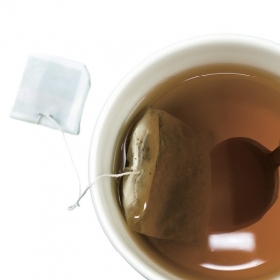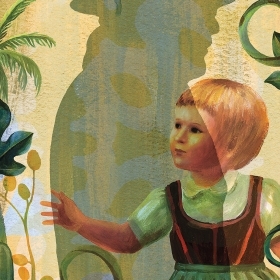The Plum Trees by Victoria Shorr ’71, a beautiful and painful novel, is a tribute to those who survived and those who died in the death camps of the Holocaust. It is nothing like current events, yet it feels particular powerful at this moment in history.

Victoria Shorr ’71
The Plum Trees
Norton
262 pages, $27.95
I was reading The Plum Trees by Victoria Shorr ’71 when Russia invaded Ukraine. Shorr’s beautiful and painful novel, a tribute to those who survived and those who died in the death camps of the Holocaust, is, of course, nothing like current events. It’s estimated that 70 to 85 million people died during World War II. Six million were Jews; even toward the end, in June 1944, “on a good day,” writes Shorr, “the Nazis could still gas up to twelve thousand people.” As this magazine went to press, there had been thousands of civilian casualties since Russia invaded Ukraine. The numbers, the scale, the systematic destruction, are not comparable. Yet as I pored through Shorr’s moving book, all I could think was, “It’s happening again.”
The Plum Trees is framed by the story of Consie, who discovers a letter from 1945 claiming her great-uncle Hermann escaped Auschwitz. She becomes obsessed with trying to discover what happened to Hermann. The bulk of the novel is a flashback, piecing together Hermann’s story through recollections by his daughter, Magda, after Consie finds a video of her recounting how she and her two sisters survived. Magda is, unfortunately, no longer alive when Consie begins her research, and so the tape is all Consie has.
Because that’s the thing—in 2022, World War II seems far away. The majority of the people who fought, survived, and lived through it are no longer alive. But these days, a world war doesn’t seem far away at all. So many of Shorr’s lines were thoughts I’ve had recently when reading the news. “This couldn’t go on much longer,” Hermann reassures his family in 1939, as they sew yellow stars to their clothes. “Not with England poised for action, and America in the wings.” Right? NATO can’t let Putin continue this for much longer.
“This kind of madness could not be allowed to go much further,” Hermann thinks, and I think. Then, the world decided “the sacrifice of Czechoslovakia offered the chance for ‘peace in our time’” and, at least right now, it seems many world leaders are willing to let Putin have Ukraine if they can stop a world war.
“Could Hitler win? Would God allow it? Was there a God?” thinks Hermann in 1942, trying to hang on to his family home in Czechoslovakia. Could Putin win?
Hermann and his family are eventually separated, and Magda and her sisters are sent to Auschwitz-Birkenau, where they manage to work and survive. Finally, in 1945, once the Nazis feel the Allies closing in, the girls are sent on a horrific death march, and the guards are told to shoot the girls by their commander. But the guards just stand there. “They were starting to look around, with strange, almost startled looks on their faces, like men waking up from a long dream. They stood staring at the girls, as if they weren’t sure who they were,” writes Shorr, and I think of the president of Ukraine, Volodymyr Zelenskyy, telling the Russian soldiers to “go home,” saying that they are “confused children who have been used.”
All that has changed are the names. The Russians were the “good guys” in World War II; Magda and her sisters are overjoyed when they see flags with hammers and sickles and hear that the Russians have liberated Auschwitz. You feel for the Russians in The Plum Trees, Hitler concluding that “the Russians were fundamentally lesser beings whom the Germans had been born to rule.”
But now, Putin has concluded that it’s Ukrainians whom the Russians were born to rule. “We will strive for the demilitarization and de-Nazification of Ukraine, as well as bringing to justice those who committed numerous bloody crimes against civilians,” said Putin, explaining his reasoning for invading Ukraine. Of course this is nonsense; Zelenskyy himself is Jewish. But Putin has dusted off the Nazis as his enemy, writing Russia once again as the hero, and making Shorr’s novel more timely than ever.
Some things are different, but other things, most things, are exactly the same. The Plum Trees is an important book to read to never, ever, forget that.
Bartels’s first book, Good Grief: On Loving Pets, Here and Hereafter, comes out in August from Mariner Books. She is a senior editorial writer for communications & public affairs at Wellesley.


